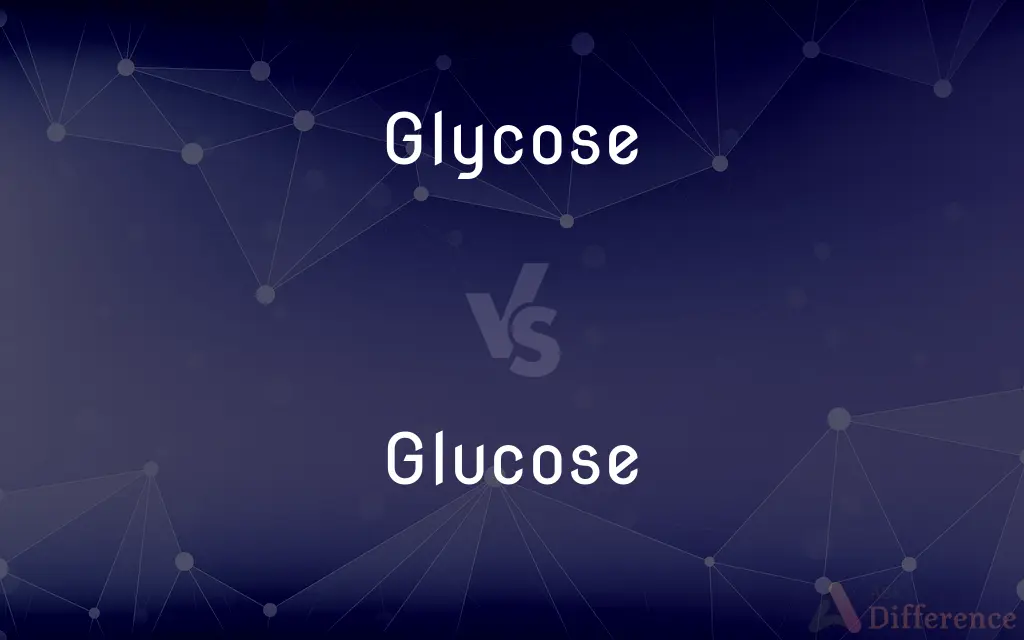Glycose vs. Glucose — What's the Difference?

Difference Between Glycose and Glucose
ADVERTISEMENT
Compare with Definitions
Glycose
(carbohydrate) any monosaccharide
Glucose
Glucose is a simple sugar with the molecular formula C6H12O6. Glucose is the most abundant monosaccharide, a subcategory of carbohydrates.
Glycose
One of a class of carbohydrates having from three to nine atoms of carbon in the molecules and having the constitution either of an aldehyde alcohol or of a ketone alcohol. Most glycoses have hydrogen and oxygen present in the proportion to form water, while the number of carbon atoms is usually equal to the number of atoms of oxygen.
Glucose
A simple sugar which is an important energy source in living organisms and is a component of many carbohydrates.
Glucose
A monosaccharide sugar, C6H12O6, that is used by living things to obtain energy through the process of aerobic respiration within cells. It is the principal circulating sugar in the blood of humans and other mammals.
ADVERTISEMENT
Glucose
A colorless to yellowish syrupy mixture of dextrose, maltose, and dextrins containing about 20 percent water, used in confectionery, alcoholic fermentation, tanning, and treating tobacco. Also called starch syrup.
Glucose
(carbohydrate) A simple monosaccharide (sugar) with a molecular formula of C6H12O6; it is a principle source of energy for cellular metabolism.
Glucose
A variety of sugar occurring in nature very abundantly, as in ripe grapes, and in honey, and produced in great quantities from starch, etc., by the action of heat and acids. It is only about half as sweet as cane sugar. Called also dextrose, grape sugar, diabetic sugar, and starch sugar. See Dextrose.
Glucose
Any one of a large class of sugars, isometric with glucose proper, and including levulose, galactose, etc.
Glucose
The trade name of a sirup, obtained as an uncrystallizable reside in the manufacture of glucose proper, and containing, in addition to some dextrose or glucose, also maltose, dextrin, etc. It is used as a cheap adulterant of sirups, beers, etc.
Glucose
A monosaccharide sugar that has several forms; an important source of physiological energy
Share Your Discovery

Previous Comparison
Angler vs. Pirate
Next Comparison
Scholarship vs. Subsidy














































